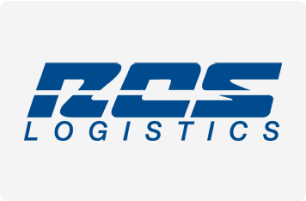Logistics AI has been a hot topic for a while now, which comes as no surprise in an industry driven by the latest and greatest buzzword. Part of this infatuation for logistics artificial intelligence is clearly driven by tech upstarts and the big consulting companies trying to raise funding or bill consultant hours, respectively. Interest in logistics AI can also be attributed to the potential value of AI, and the feeling of FOMO which is ever-present in logistics tech.
AI having a role to play in logistics isn’t all black and white. It is already put to great use in some areas, and remains highly theoretical (and hyped-up) in others. The question remains: when will AI truly be ready for logistics?
AI in logistics is just like Amazon Just Walk Out: human-enabled.
Not so long ago, we were all reading articles about artificial intelligence coming for the workforce. The wave of fear and theorizing about who will be impacted in logistics was both interesting and concerning. As the provider of a Supply Chain Orchestration Network designed to enable collaboration between BCOs and forwarders, we’ve studied the AI question. At best, when applied to logistics, the current generative AI trends are powerful enablers and enhancers.
What happened to Amazon Just Walk Out?
When the world finds out that “AI” doesn’t stand for “artificial intelligence” it can create some problems. Amazon’s just walk out platform allowed users to grab items off the shelves and simply walk out of the store, their Amazon account being debited of the total spend.
It turns out hundreds of Indian workers were watching cameras in the store, validating purchases. Part of the learning process or a necessary failsafe? Amazon’s experience with Just Walk Out highlighted the big problem with AI: how do you deal with unknown variables?
Robotization and AI are really hitting it off.
On the other end of the scale, we have McDonalds with fully automated restaurants and the world’s top warehouse operators with fully automated warehouses working without breaks. Why do these situations work whereas Amazon’s Just Walk Out doesn’t? They do not have to deal with unknown variables.
In McDonald’s case: every ingredient is stored in a specific place, and every order is processed and paid for BEFORE providing the end product to the consumer. As for warehouses, when stock comes in, it is stored in a specific location, and an order to move stock out comes through digitally, BEFORE the goods are picked and exit the warehouse.
Unknown variables are AI’s current blind spot.
The current reality of logistics AI
Chatbots and data entry solutions backed-up by offshored resources. This is the current reality of logistics AI. You could argue that “visibility” has been improved by “machine learning algorithms” thanks to “RTTVP” Gartner Magic Quadrant stakeholders, but that remains at best unproven.
There are many examples in logistics of “AI data-entry” solutions being nothing more than human-powered data entry farms located in cheap-labor countries. Our own OCR solution, designed to capture data from paper-format documents and emails, requires initial human interaction to set-up a new document template. Exceptions are also sent to a human for review. This doesn’t stop such solutions from being excellent, with one of our customers, TQL, seeing a 2700% ROI and essentially eliminating manual data entry in parts of their business.
The more deceptive solutions out there, with lower accuracy counts (our solution provides 99.7% accuracy thanks to our robust exception management processes), are facing many challenges. CargoWise’s recent acquisition of Shipamax should lead to the elimination of data entry for the bulk of their customer base. The ocean carriers committing to fully electronic bills of lading will also see these service providers lose business.
Logistics AI’s toughest challenge will be regulation.
Recent US customs rulings have set in motion changes that will impact both AI solutions and human-powered data entry offshoring. US customs data can no longer be processed or entered by unlicensed third-parties, nor by entities located outside of the US.
This means that solutions heavily relying on hundreds, if not thousands of low-cost humans to process data entry or validate “AI-enhanced” data capture, will see their entire business model implode. These constraints can easily expand into other geographies or data outside of US customs, further limiting the use of what are essentially data farms with a digital front.
What does the future hold for AI in logistics?
Logistics has its fair share of unknown variables, but our processes are also ripe for an AI revolution. Logistics is built on heavily repetitive processes, high-levels of compliance, and copious amounts of data. As AI evolves, and learns more about logistics and its quirks, breakthroughs will happen.
Just like we’ve witnessed with robotization and automation in warehousing, the same can be expected in digitization. If you want to get ahead of the curve and be best prepared for when AI finally gets to a level where it can be applied to logistics at scale and with amazing results, focus on the quality of your data today.
Because at the end of the day, whether you rely on AI or human-resources, your results will only ever be as good as the data you feed into your systems.
About Prompt Global
At Prompt Global, we work with both forwarders and BCOs to help improve supply chain transparency, leading to lower overall costs and a better overall experience. Solutions we provide range from minimizing unnecessary charges (detention, demurrage, customs non- compliance, SCOPE 3, etc) to optimizing the PO to booking process (reduce costs, reduce transit times, avoid known global supply chain issues). Further, our tech centralizes data into a unified platform that a BCO can utilize with all of its forwarders and similarly a forwarder can use with all of its shippers.
Our user base extends from DSV and FedEx to Kohl’s and HP.
Also, unlike most other logistics technology companies, we’re fully self funded and profitable so you don’t have to worry about our solvency or longevity.
Prompt is GDPR, ISO 27001, and SOC 2 compliant.


